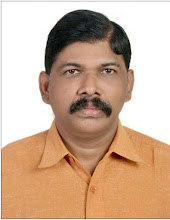The elderly music connoisseurs strongly believe that the golden era of Hindi film music ended in the 1960s. Their next-generation proudly talks about the music in Hindi films during the ’70s, fondly remembering R. D. Burman. But they more or less refuse to acknowledge the melody making a comeback in the 1990s, representing the generation gap.
However, the fact remains that Hindi film music did witness a big revival beginning from the late ’80s with films like Lal Dupatta Malmal Ka and Aashiqui. Besides, melody truly ruled the charts in the ’90s, led by exceptionally talented music directors like Anand-Milind, Anu Malik, Nadeem- Shravan, A.R. Rahman, Jatin-Lalit, Ram-Laxman, Dilip Sen-Sameer Sen, and even R. D. Burman coming up with his swansong.
All the above names made their melodious contribution in the musical ’90s, but the one name that remained miles ahead of them all was of Nadeem-Shravan. The duo finally made a breakthrough in film music with Aashiqui in 1990 along with T-series and the album remains one of the top-selling film soundtracks in the history of Indian music market to date. Their talent proved itself with successive best-selling soundtracks as Dil Hai Ke Maanta Nahin, Saajan, Saathi, Phool Aur Kaante, Sadak, Deewana, and many more. Giving them the deserving due, Nadeem-Shravan ruled the music charts till the mid-‘90s and continued delivering mega-hits later too, with films such as Sajan Chale Sasural, Raja Hindustani, Pardes and Dhadkan. Their decade of success not only helped many music companies to establish themselves but also remained instrumental in shaping the careers of many renowned singers and lyricists like Kumar Sanu, Alka Yagnik, Udit Narayan, and Sameer.
Recalling that unforgettable musical era of cassettes, I would love to share how Nadeem Shravan brought back the memories of the golden era of Hindi film music and its presentation in the market. Travelling back in time, the veteran O. P. Nayyar was one of the first music directors to be featured on film-posters and LP records as his music helped the film, more than anything else. Later, Shankar-Jaikishan became the name prominently mentioned in the film’s promotional campaigns and records. Nadeem-Shravan brought that trend back into Hindi film music’s marketing and promotion after a long gap when the producers and music companies started using their pictures on the cassettes and records sleeves post the early ’90s.
Also Read: Shravan Rathod, wife tested positive for COVID-19 after attending Kumbh Mela, reveals son
Back in those decades, films were also announced after signing the trending composers, as music played a major role in any film’s success and roping in the big names was not an easy task for most of the producers.
The announcement was considered important as many times a film could not only recover its cost but also become a cult creation just because of its soundtrack. A similar trend was seen in the mid-‘90s when signing Nadeem-Shravan as music director was enough to announce a project and raise finances. The duo continued to prove themselves when their soundtracks were declared hits, even when the films couldn’t do anything similar at the box office, like Jaan Tere Naam, Dil Ka Kya Kasoor, Sainik, Salaami, and more.
Also Read: CinemaScope: The story behind Dev Anand's first English film
Switching to a new music director, breaking years-old association with a team, also used to be big news in the decades before the ’80s. Nadeem-Shravan revived that trend too when many established names made a sudden shift to opt for them, surprising the industry. Subhash Ghai signing them for his Pardes was exactly that kind of news in the mid-’90s.
Winning several reputed awards for their creations as the undisputed kings of Hindi film music in the ’90s, the duo had their share of criticism, including accusations of having links with the underworld and of plagiarism, lifting tunes from many Pakistani songs. However, that never hampered their growth, even when they got mocked in Akele Hum Akele Tum directed by Mansoor Khan. The film had music by their competitor Anu Malik and the comic depiction (resembling the duo) created a major controversy post its release in 1995. Unfortunately, where all the accusations couldn’t make a dent, the tragic murder of Gulshan Kumar in 1997 proved to be the key factor responsible for their slide.
Also Read: CinemaScope: When Shashikala played a Hindi film actress as Sheela Devi
Moving on from that setback, though the composers managed to make a comeback with their hit soundtracks in films released around 2000 — that one incident got stuck with their names forever, causing irreparable damage to their image as a team. Sadly, now the present generation gets to know about their outstanding work, along with reading the reference of Kumar’s murder, resulting in several unrequired assumptions and misconceptions.
The team of Nadeem-Shravan finally broke with Shravan passing away, losing his fight against covid a few days back. The sad news must have brought many memories back for the people who have lived that era of cassettes and tape-recorders, repeatedly playing the duo’s songs using the rewind button.
Also Read: CinemaScope: The astonishing viewership of dubbed films and Satyajit Ray’s Apu Trilogy in Maithili
from Free Press Journal https://ift.tt/3nkcFhI
via IFTTT































0 comments:
Post a Comment